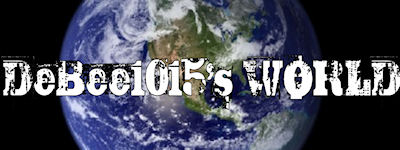Interview by Sian Llewellyn
Sharks rising from the depths
What do you think when people mention Shark Frenzy today?
Richie Sambora: I remember it as being a great time. You have to remember that this was my first proper gig. All the other guys were about ten years or so older than me, and had so much experience, they had played with people like Gladys Knight! And there I was, this 18 or 19 year old kid and I was playing with these phenomenal session players. It was a great introduction to the whole session scene. And I got to be great friends with these guys.
Bruce Foster: What was amazing was how mature a guitarist Richie was for his age. He fit in with us straight away, it was as if we'd been playing
together for years.
What did you learn from playing in Shark Frenzy?
Richie Sambora: I think of Shark Frenzy as almost my musical education. I learned so much in terms of how to play with other people - how to fit in with a band. We covered so many different styles too, it really improved my chops.
Can you still recognize yourself when you listen to the album?
Richie Sambora: Oh yeah! I was listening to it in the shower this morning. It was a definite trip, and kinda embarrassing at times too. You've got to remember how much of a kid I was. I can still hear how my blues roots were coming through - I hadn't really been playing all that long when we
recorded this, just a few years. You can hear that I'm still establishing my musical identity.
How did you come to play with Shark Frenzy?
Richie Sambora: Bruce and the guys were in a band that played many of the clubs around New Jersey and I was the "hotshot" guitar kid around town. They'd heard of me and I'd heard of them, and then one night I moseyed into a bar where they were playing. And it just so happened that their bass player had gotten food poisoning, so they asked from the stage if there were any musicians in the house. Then they saw me and said "you're a guitarist, you can do it". So I played bass that night, and that's how it happened. Next thing I know I was playing with them all the time.
Where did that lead you?
Richie Sambora: Before I knew it, the guys were getting me on in sessions in New York City and Philadelphia. It was there I learned the skills to cut through a lot of the chase and realize what worked and what didn't when it came to recording. I learned about the economy of music, and how important arrangements were when it came togetting music down on tape.
How often did you play?
Richie Sambora: We played on and off for years - we had a reunion in May 2004 which was fantastic. Shark Frenzy was a cool band. What made it cool was that we all really dug each other, and after the show we'd hang out together. Sometimes it would be five o'clock in the morning and we would still be standing out in a freezing parking lot just shooting the shit.
Bruce Foster: At one point we were playing about three or four nights a week - the camaraderie was brilliant. Sometimes the police would have to chase us out of the parking lot because we were still hanging out two hours after the show was over. The reunion was great - it was as if we had never left the stage! We had a ball and we were as tight as ever - it's as if muscle memory took over and we all had such a good time, Richie ended up playing the whole set. It would be great to do it again.
What do you make of the performances on Shark Frenzy?
Richie Sambora: The life stuff is just us really jamming, and is really a testimony to our musicianship. It was (and still is when we played recently) such an exciting thing. I'm obviously a way better musician today, but you never lose your roots.
How were Shark Frenzy's sets worked out - were they mostly originals or cover versions?
Richie Sambora: We used to play Beatles and Rolling Stones covers, maybe some Tom Petty. Most of the time we just used to show up and see what happened. The covers were rarely rehearsed, we just used to work them up in the car on the way over to the show. Originals were different - those we worked on. We used to play three sets a night, we'd play two sets of cover versions and then the third set we used to get to play our originals.
How did the sessions for Shark Frenzy occur?
Bruce Foster: All in all, I think we had about 25-30 originals worked up. Shark Frenzy was primarily a live band, but we did manage to go and record about two to three hours of original material. At the time we had no money, but a friend had a studio. We used to go to see him and ask if he had any spare tape left at the end of a reel that we could use. You have to remember that a reel cost about $120 at that time. We used to record live onto the last 10 or 20 minutes. We lost a lot of those as they'd then get wiped and reused.
Why have we had to wait until now to hear these songs?
Bruce Foster: Until now the technology hasn't really been such that we could put them together. I only had the rough mixes on tape and some of them had been water damaged so we had to piece them together bit by bit.

No comments:
Post a Comment